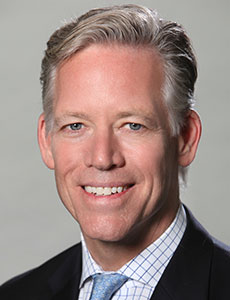Sponsored Content by The Hartford
Beware of these 3 Unexpected Insurance Consequences of Overseas Operations

Mid-sized companies in the U.S. are going global.
According to a survey conducted by The Hartford in Q2 2017, 80 percent of mid-to-large size companies in the U.S. are engaging in overseas business, ranging from executive travel all the way to manufacturing. Globalization and technology create opportunities to tap into new markets, and companies that don’t take advantage of those opportunities risk losing out to competitors that do.
“Eighty percent of mid-size companies have some type of international exposure, and we expect that these companies will only continue to increase their international activities going forward,” said Alfred Bergbauer, Vice President and Head of Multinational Underwriting, The Hartford.
Despite this growing trend, many U.S. corporations remain uninformed of — and underinsured for — their risks outside the U.S.
Most mid-sized companies address their international exposure via a global master policy, which is issued in the U.S. and provides blanket terms and conditions to all of an insured’s operations, including those outside the U.S. Buyers may believe it fully covers any exposures faced abroad, but a U.S. global master policy may not operate as traditional local insurance would. For example, it may not be recognized by a local regulator and may be inconsistent with local law. Thus, the performance of the insurance may not be in line with the insured’s expectations of how the policy should perform in the event of a loss or where a certificate of insurance is required.
As a result, the U.S. issuing carrier may not be able to respond to a loss arising at an insured’s facility outside the U.S. as the insured might expect, and payments or reimbursements made to the insured resulting from that policy could carry significant tax penalties or fees.
“A U.S. contract cannot bend the rules and regulations of a sovereign nation,” Bergbauer said. “A U.S. master policy may be inconsistent with local insurance terms and conditions, norms and practice and thus cannot always address local country risk needs as a local policy issued in that country would. For risks located outside the U.S., such as risks arising from operations in other countries, master policies should be paired with coordinated, locally issued insurance policies.”
Brokers and buyers unaware of the specialized insurance structures required to legally transact business abroad could face the following three unintended consequences:
1. If the insured suffers a loss, they might not be indemnified.

Alfred Bergbauer, head of Multinational Insurance
Domestically, U.S. companies have very clear expectations for their insurers. If the insured suffers a compensable loss, they want their carrier to pay the claim ―whether it’s first- or third-party― and hire counsel to represent them if necessary. In other words, they expect full indemnity.
But this basic expectation for indemnification is not automatic in foreign countries. If an insured does not have a local policy and suffers a loss, an expedient claims payment may not always occur.
That is, “Without a local policy, the U.S. policy may not behave as the customer would expect it to,” Bergbauer said. “For example, in some countries, it may be more difficult to hire counsel, to utilize a claim adjuster to pay a local third party, and crucially, pay the insured’s local operation which suffered the loss.”
2. Claims payments could be subject to U.S. taxes.
If an insured has only a U.S. master policy, the insured’s foreign operation would be responsible for covering the loss in the foreign country and the U.S. insured would then seek reimbursement from its insurer in the U.S.
However, a claim payment made in the U.S. to cover a loss suffered by foreign entity is considered a taxable event in the eyes of the IRS.
“The IRS takes the view that the insured has no loss to offset against this payment, resulting in the payment being taxable at the U.S. corporate income tax rate —currently 21 percent,” Bergbauer said.
“It can be a very uncomfortable situation if the broker or insured were unaware of that dynamic.”
Getting hit with such a significant and unexpected tax leaves the insured short of the funds needed to recover from a loss, and threatens the trust placed in their broker to educate them about this exposure.
3. Failure to obtain insurance from a local carrier exposes the insured to many risks.
If an insured’s local operations are required to obtain property or liability cover from a local insurer either by local law or because the local operations need to provide certificates of coverage from local insurers, insurance provided by a U.S. insurer may not address these requirements.
“If the local regulator finds evidence that a local operation does not have insurance provided by a local carrier where it is required to do so, it can issue penalties against both the broker and the policyholder,” Bergbauer said. “China, for example, has issued penalties for unlicensed insurance equal to five times the amount of the illegal claim payment.”
Beyond a sizable bill, such companies also stand to take a hit to their reputations.
“You want to be viewed as an upstanding corporate citizen in the markets where you operate.” Bergbauer said.
“If a local newspaper calls you out for breaking the law, it can be tough to recover from.”
An Intensifying Exposure
 All of the above risks stem from relying on a Global Master Insurance policy which does not leverage locally admitted policies. The risks associated with covering risks arising from foreign operations without local policies have always existed, but they have flown under brokers’ radar because enforcement of local insurance laws was relatively lax.
All of the above risks stem from relying on a Global Master Insurance policy which does not leverage locally admitted policies. The risks associated with covering risks arising from foreign operations without local policies have always existed, but they have flown under brokers’ radar because enforcement of local insurance laws was relatively lax.
That is no longer the case.
Today, ministries of finance and regulatory authorities have started collaborating across borders to share information about foreign investment trends and audits conducted on foreign firms, even entering multilateral agreements to identify violators of insurance law.
“They look for the most egregious offenders and make examples of them,” Bergbauer said.
In light of the enforcement crackdown, multinational companies can ill afford to be uninformed of their international insurance risks or the solutions available to address them. Sophisticated brokers in the U.S. may be experts on domestic regulatory requirements, but too often they lack knowledge of varying rules and regulations outside our borders, and of the solutions available to fulfill them.
“Most companies with international exposures are never approached by their broker to discuss those risks and delve into the best way to insure them,” Bergbauer said.
“Brokers do not spend enough time discussing the extent of their customers’ international activities, or how their policies will respond to them. So we’re going out to our broker network and teaching them how to have this conversation.”
Keys to Compliance: Education and the Controlled Master Program
Through seminars, informational bulletins and one-on-one conversations, The Hartford is reaching out to agents and brokers to make education and awareness of regulatory risk a priority. And it offers a solution to fill in the gaps where a global master policy may fall short of local standards: a Controlled Master Program, or CMP.
The Controlled Master Program differs from a Global Master Policy in a few important ways. Primarily, it allows for the placement of locally-issued admitted policies along with a U.S. master policy, while keeping the administration, claims and risk control services consolidated with one single carrier.
This means clients have a single point of contact, no matter where they have insurable assets or where they incur a loss. A comprehensive global program administered by a single carrier presents the most streamlined and efficient way to address risk exposures arising out of international activity.
The Hartford leverages its global network infrastructure — spanning 150 countries around the globe — to identify where admitted insurance is required and then places good local standard policies in compliance with local regulations. By taking a holistic underwriting approach to the entirety of a company’s exposures, the negative consequences outline above can be avoided. The CMP offers the benefits of cost efficiency, claims consistency, an increased level of control for the buyer, and better regulatory compliance.
“The Hartford’s Controlled Master Program provides the coverage that you expect in the U.S., wherever you have exposure. Alignment among underwriting, risk control services and claims guarantee consistent loss response and level of service across the board,” Bergbauer said.
Perhaps most importantly, The Hartford’s proactive outreach ensures brokers are equipped to discuss and address their clients’ international exposures, helping ensure they don’t have to learn the consequences of providing coverage without local policies the hard way.
To learn more about The Hartford’s Controlled Master Program, visit https://www.thehartford.com/global-business-insurance.
![]()
This article was produced by the R&I Brand Studio, a unit of the advertising department of Risk & Insurance, in collaboration with The Hartford. The editorial staff of Risk & Insurance had no role in its preparation.











